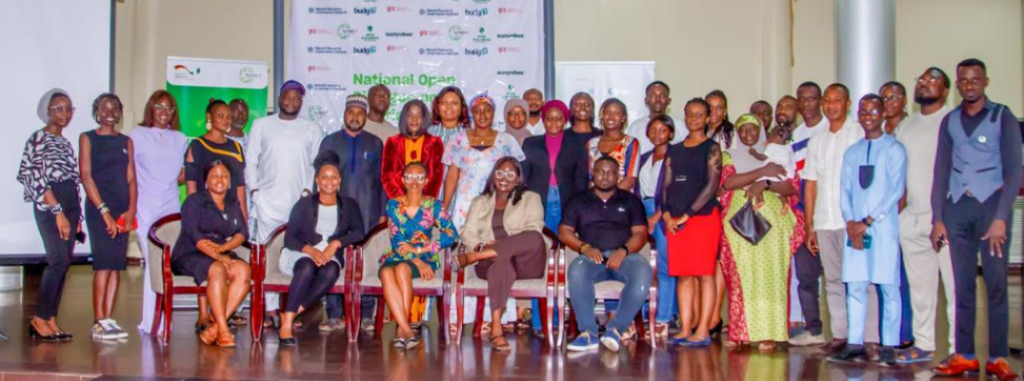Introduction
Last month, on October 26th, 2023, SustyVibes, in collaboration with partners, Deutsche Gesellschaft für Internationale Zusammenarbeit (GIZ), the BudgIT foundation, and the National Resources Governance Instituteca hosted the one-day National Open Dialogue on Nigeria’s Energy Transition Plan, a groundbreaking hybrid event online and in person at the Rockview Hotel Abuja. This event aimed to increase awareness and inspire meaningful engagement of young people, vulnerable groups, and state actors in shaping the country’s energy future.
Find out more about the event here.
About the Energy Transition Plan (ETP)
The discussion on the Nigerian energy future is important, especially with our heavy dependence on traditional fossil fuels. While petroleum is a vital export for Nigeria, contributing significantly to its Gross Domestic Product (GDP), it’s equally important to note the detrimental effects of fossil fuels on both the country and the world.
In response, the Energy Transition Plan (ETP) was introduced in August 2022. This ambitious plan aims to achieve carbon neutrality by 2060, focusing on six key areas: energy, power, transportation, oil and gas, industry, and cooking and infrastructure.
The ETP has many potential benefits for the environment and its young people, intending to uplift 100 million people from poverty and create 840,000 jobs by 2060, among others. For this reason, amplifying the thoughts, opinions, and understanding of these young people was crucial.
Event Highlights
The event started with the Deputy Ambassador of the Federal Republic of Germany, Johannes Lehne, highlighting the imperative to harness the vibrant energy of Nigerian youth for sustainable energy as well as keynote speech by Mr. Duke Benjamin, German Coordinator of Just Transition and Inclusion at GIZ, delivered a powerful keynote emphasizing the significance of youth inclusion in achieving sustainability and innovation and Mr. Somkele Awa-Kalu, a finance specialist, provided an insightful introduction to the Energy Transition Plan and its implications for Nigeria’s socio-economic development.
Duke Benjamin, German Coordinator of Just Transition and Inclusion at GIZ
The event incorporated elements of fun with an engaging Mentimeter quiz and icebreaker survey, allowing participants to envision Nigeria in 2060 after the successful implementation of the Energy Transition Plan and a beautiful spoken word presentation, by Obinna Nwakonobi emphasizing the role of young people as change agents for a sustainable future.
Responses from the Mentimeter Poll
The event also featured a panel session, moderated on the impact of fuel subsidy removal, the role of hydrogen, and the need for a broader industrialization strategy, followed by smaller breakout sessions where moderators delved into recognizing youth competence, providing practical opportunities, improving communication, and ensuring active youth engagement. Bringing representatives together, the plenary session discussed key findings, recommendations, and action points, fostering a collaborative approach toward Nigeria’s energy transition.
L – R: Gina Elisa Lagunes, Dr Tobi Oluwatola, Somkele Awa-Kalu
In conclusion, the National Open Dialogue on Nigeria’s Energy Transition was a resounding success, bringing together stakeholders to discuss and deliberate on the future of the country’s energy landscape. It becomes evident that a just energy transition is essential—one that prioritizes the welfare of individuals fosters good jobs and capacity training for youth, ensures prosperity, improves the cost of living, and addresses energy poverty.
In the coming days, we will be releasing an event communique with details on the event findings.

